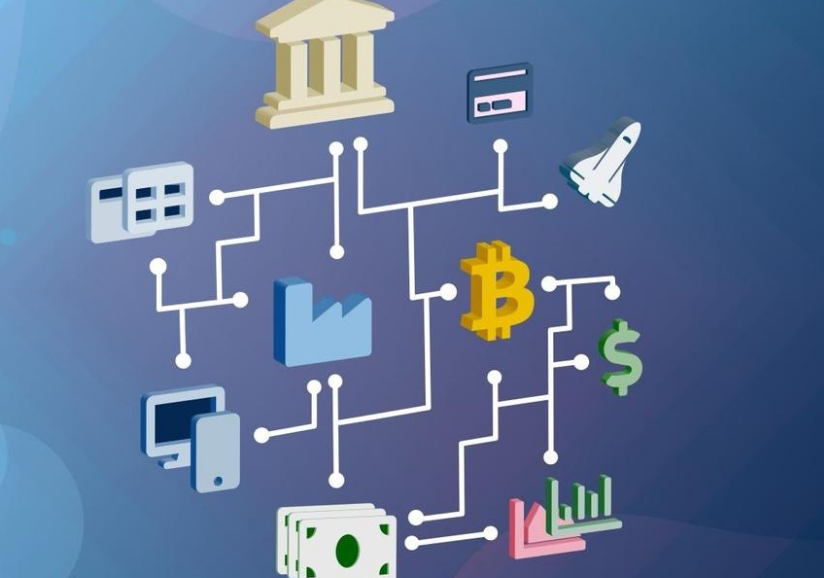The US Senate just dropped a game-changing update to its crypto bill, making sure tokenized stocks stay firmly in the securities camp. This move on September 5, 2025, slams the door on any debate about treating them like commodities. It promises clearer rules for investors and firms, but what does it mean for the booming world of blockchain finance? Stick around to find out how this could reshape the market.
Key Changes in the Responsible Financial Innovation Act
The Senate’s Responsible Financial Innovation Act of 2025 got a fresh tweak last Friday. Senators added a clause that explicitly states tokenized stocks must remain classified as securities. This ends the back-and-forth confusion over whether these digital versions of traditional stocks could slip into commodity territory under the Commodity Futures Trading Commission (CFTC).
Tokenization turns real-world assets like stocks into digital tokens on blockchain networks. It’s a hot trend because it makes trading faster and more efficient. But without clear rules, companies worried about regulatory headaches. Now, the bill keeps these assets under the Securities and Exchange Commission (SEC) oversight, matching them with existing stock market rules.
This update aligns with a bigger push to split duties between the SEC and CFTC. The SEC handles securities, while the CFTC oversees commodities. By drawing this line, the bill aims to foster innovation without letting things get too wild.
Lawmakers say this will boost investor protection. A full Senate vote is set for November, potentially landing on the president’s desk by year’s end.
Why Tokenized Stocks Need This Clarity
Tokenized stocks have exploded in popularity. Think of them as digital shares that live on blockchains, allowing 24/7 trading and easier access for everyday investors. But the big question was always: are they securities or something else?
The new provision ensures they stay securities. That means they work seamlessly with current broker-dealer systems, clearing houses, and trading platforms. No need for a total overhaul, which could have stalled progress.
Industry experts point out that this prevents a regulatory gray area. For instance, if tokenized stocks were labeled commodities, it might have opened doors to less strict oversight, risking market chaos. Instead, sticking with securities rules keeps things stable.
One key benefit? It could attract more big players. Banks and investment firms might dive deeper into tokenization, knowing the rules are solid.
Industry Pushback and Calls for More Protections
Ahead of this bill update, 112 crypto companies and advocacy groups banded together. They urged lawmakers to add safeguards for developers and non-custodial service providers. These are folks who build tech or hold assets without taking full control, like decentralized finance (DeFi) platforms.
Their letter highlighted fears of overreach. They want the bill to protect innovators from harsh penalties, especially after recent cases where developers faced legal heat.
This push shows the tension in crypto. On one side, regulators want to curb risks like fraud. On the other, the industry craves room to grow.
Here’s what the groups are asking for:
- Clear exemptions for non-custodial tech.
- Stronger rules against misclassifying assets.
- Better teamwork between SEC and CFTC.
These demands could influence the final bill. With a vote looming, expect more lobbying.
The bill also touches on other areas, like staking and decentralized physical infrastructure networks (DePIN). It clarifies these aren’t securities, giving a nod to crypto’s tech side.
Broader Impact on Crypto Regulation
This Senate move fits into a larger wave of US crypto laws. Just months ago, acts like the GENIUS Act passed, setting rules for stablecoins. Those digital dollars now need full reserves and Fed oversight, building trust in the system.
Tokenization isn’t just about stocks. It covers bonds, real estate, and more. By keeping tokenized securities under SEC watch, the bill could speed up adoption in real-world assets (RWA). Analysts predict the RWA market could hit $10 trillion by 2030, per a Boston Consulting Group report from 2023.
But challenges remain. Critics worry the bill doesn’t go far enough on developer protections. Others say it might slow innovation if rules get too tight.
A table of recent crypto bills shows the momentum:
| Bill Name | Focus | Status |
|---|---|---|
| Responsible Financial Innovation Act 2025 | Tokenized assets and oversight split | Updated, vote by November |
| GENIUS Act | Stablecoin regulation | Passed in June 2025 |
| FIT for the 21st Century Act | Decentralized assets as commodities | Under consideration |
This landscape is evolving fast. The Senate’s update addresses key concerns, but the full picture depends on the vote.
The bill draws from global trends too. In Europe, the MiCA framework already sets token standards, pushing the US to catch up.
In all, this is about balancing growth with safety. As crypto weaves into mainstream finance, these rules will shape how Americans invest and trade.


 Bitcoin
Bitcoin  Ethereum
Ethereum  Solana
Solana  Cardano
Cardano  Chainlink
Chainlink  Avalanche
Avalanche  Sui
Sui  Polkadot
Polkadot  Mantle
Mantle  Bittensor
Bittensor  Internet Computer
Internet Computer  NEAR Protocol
NEAR Protocol  Quant
Quant  Cosmos Hub
Cosmos Hub  Algorand
Algorand  Aptos
Aptos  Filecoin
Filecoin  Render
Render  Arbitrum
Arbitrum  Sei
Sei  Stacks
Stacks  Jupiter
Jupiter  Optimism
Optimism  Injective
Injective  The Graph
The Graph  Celestia
Celestia  Pyth Network
Pyth Network  THORChain
THORChain  MultiversX
MultiversX  Immutable
Immutable  Flow
Flow  Akash Network
Akash Network  dYdX
dYdX  Illuvium
Illuvium  Manta Network
Manta Network  Kujira
Kujira  Metis
Metis  Dymension
Dymension